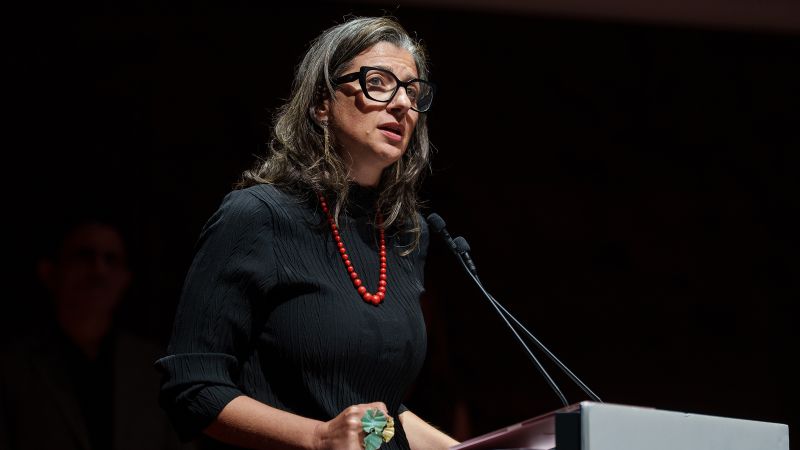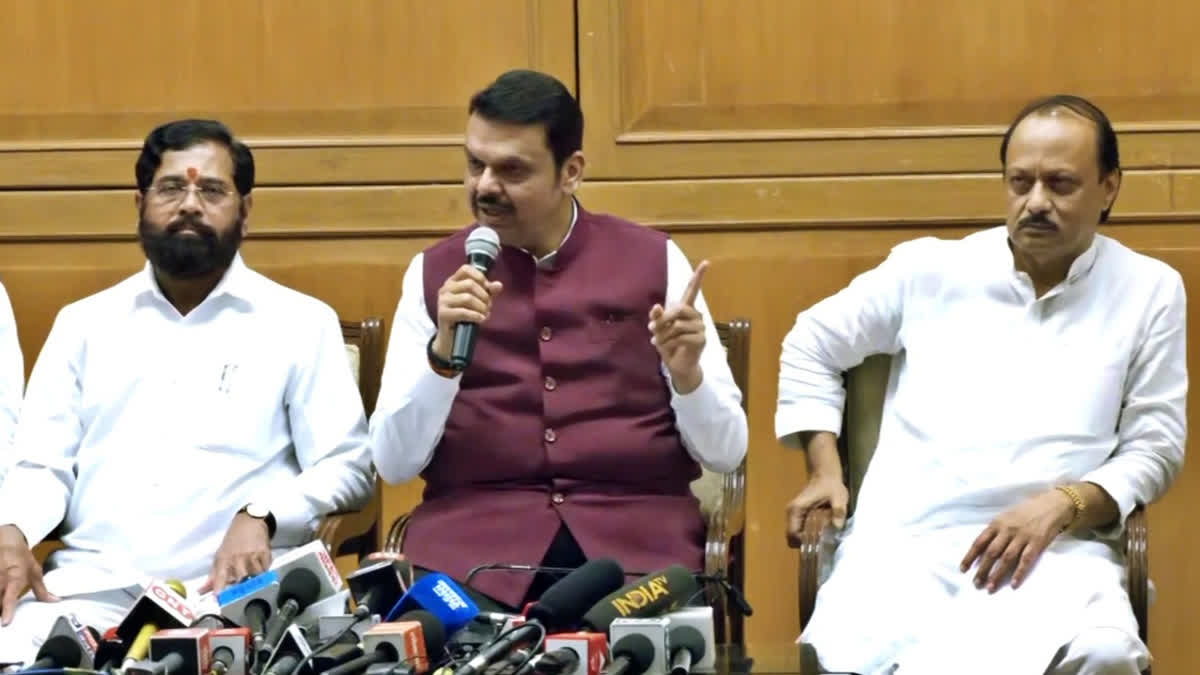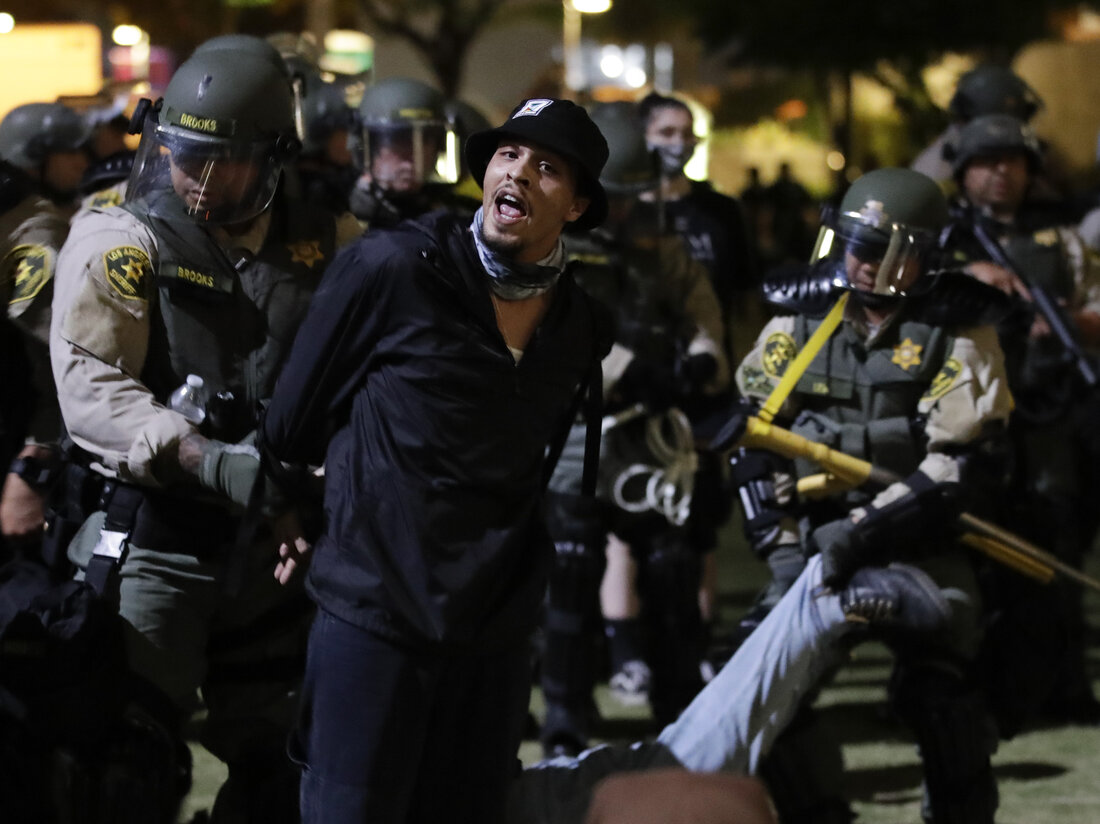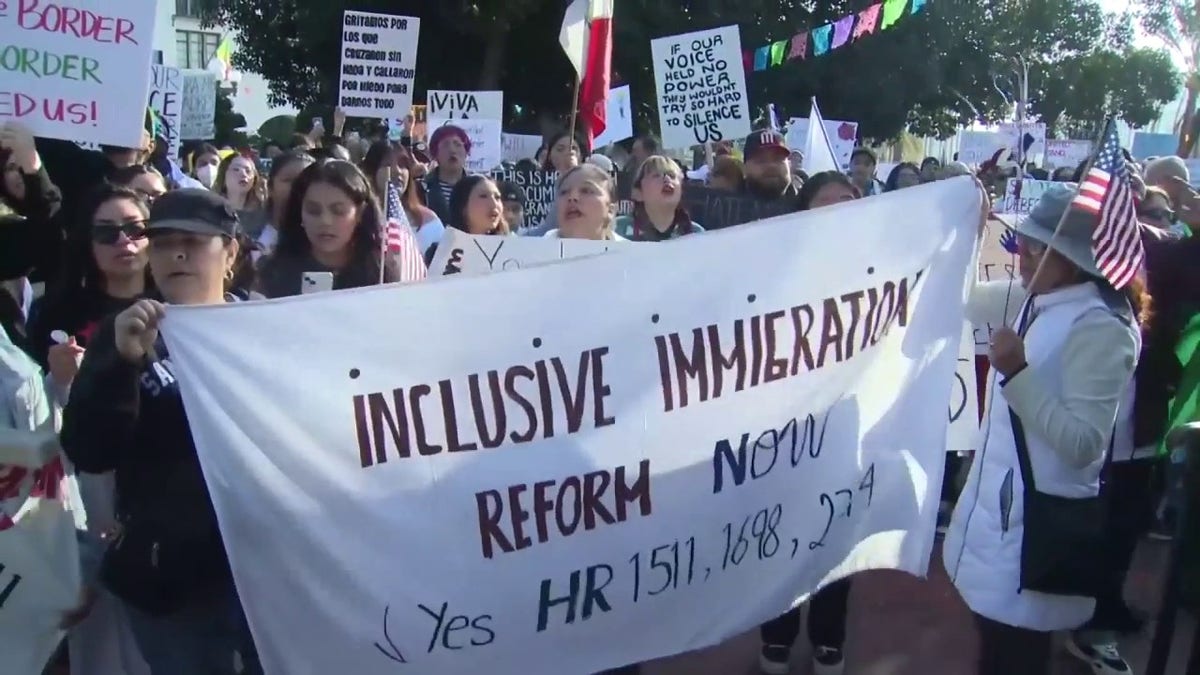Freed from ICE Detention: Palestinian Activist Seeks $20 Million from Trump Administration
Freed from ICE Detention: Palestinian Activist Seeks $20 Million from Trump Administration
Mahmoud Khalil, a Palestinian activist, was detained for over three months in immigration jail due to his involvement in campus protests against Israel. Now, he is seeking $20 million in damages from the Trump administration. His lawyers filed a claim on Thursday, alleging violations of his constitutional rights while in custody. This is just one of many cases where individuals have faced mistreatment in immigration detention centers. The Trump administration's strict immigration policies have been met with widespread criticism and legal challenges. Khalil's case highlights the need for reform in the immigration system and the protection of individuals' rights.
About the People Mentioned
Mahmoud Khalil
Mahmoud Khalil is a Palestinian-Syrian activist and former graduate student at Columbia University, born in 1995 in a refugee camp in Damascus, Syria. He holds Palestinian refugee roots from Tiberias and grew up in Syria before pursuing higher education. Khalil earned a bachelor's degree in computer science from the Lebanese American University and completed a master's degree in International Affairs at Columbia University's School of International and Public Affairs in 2024[1][3]. Before his activism prominence, Khalil worked in international development and social services, including managing the Syria Chevening Program at the British Embassy in Beirut, which is a UK government international scholarship scheme. He has been described by colleagues as thoughtful, intelligent, and conscientious[1][4]. He also worked with Syrian refugees and non-profit organizations focused on education[4]. Khalil became widely known for his leadership in the pro-Palestinian student movement at Columbia University, particularly during the 2024 campus occupations advocating for Palestinian rights and against alleged university complicity in Israeli policies. He served as a lead negotiator between student protesters and university administrators, helping mediate tensions without directly participating in building occupations[1][2]. His activism drew national attention and controversy, especially within debates on academic freedom and immigration policies in the United States. In March 2025, Khalil was detained by U.S. Immigration and Customs Enforcement (ICE) in Louisiana, despite holding a U.S. green card that grants him permanent residency. His detention sparked widespread discussion about immigration enforcement and the rights of activists, with his case potentially reaching the U.S. Supreme Court[1]. On a personal note, Khalil married Noor Abdalla, an American dentist, in 2023, and they are expecting their first child in April 2025[1][4]. He has been featured in the 2025 documentary "The Encampments," which chronicles the pro-Palestinian student protests[1][3]. His net worth is estimated under $100,000, primarily from scholarships and part-time consulting[1].
About the Organizations Mentioned
Trump Administration
The **Trump Administration** refers to the executive branch of the United States government under President Donald J. Trump, covering two non-consecutive periods: his first term from 2017 to 2021 and his second term beginning in 2025. As an organization, it is responsible for executing federal laws, shaping public policy, and managing national affairs during its tenure. During the **first Trump Administration (2017–2021)**, the administration pursued a wide-ranging agenda focused on immigration reform, economic nationalism, deregulation, judiciary appointments, and foreign policy shifts. Key actions included building and expanding the U.S.-Mexico border wall—completing 458 miles by January 2021—and implementing strict immigration policies such as travel bans from several predominantly Muslim countries and rescinding the DAPA amnesty program[2]. The administration withdrew the U.S. from the Trans-Pacific Partnership trade deal, renegotiated NAFTA into the USMCA, and signed the "Buy American and Hire American" executive order to prioritize American workers[1][3][5]. Judicially, Trump appointed three Supreme Court justices—Neil Gorsuch, Brett Kavanaugh, and Amy Coney Barrett—significantly influencing the federal judiciary with over 200 judicial appointments[5]. The administration also focused on military expansion, combating ISIS, addressing the opioid crisis, and responding to the COVID-19 pandemic with vaccine development support[5]. Foreign policy was marked by controversial decisions including troop withdrawals from northern Syria, reinforced support for Saudi Arabia, and tensions with Iran and North Korea[4]. The administration faced two impeachments: first in 2019 over Ukraine dealings and again in 2021 following the January Capitol riot; Trump was acquitted by the Senate both times[4][5]. After losing the 2020 election, Trump returned for a **second term starting in 2025**, continuing his policy priorities with new regulatory changes and political appointments[6][8]. The Trump Administration












